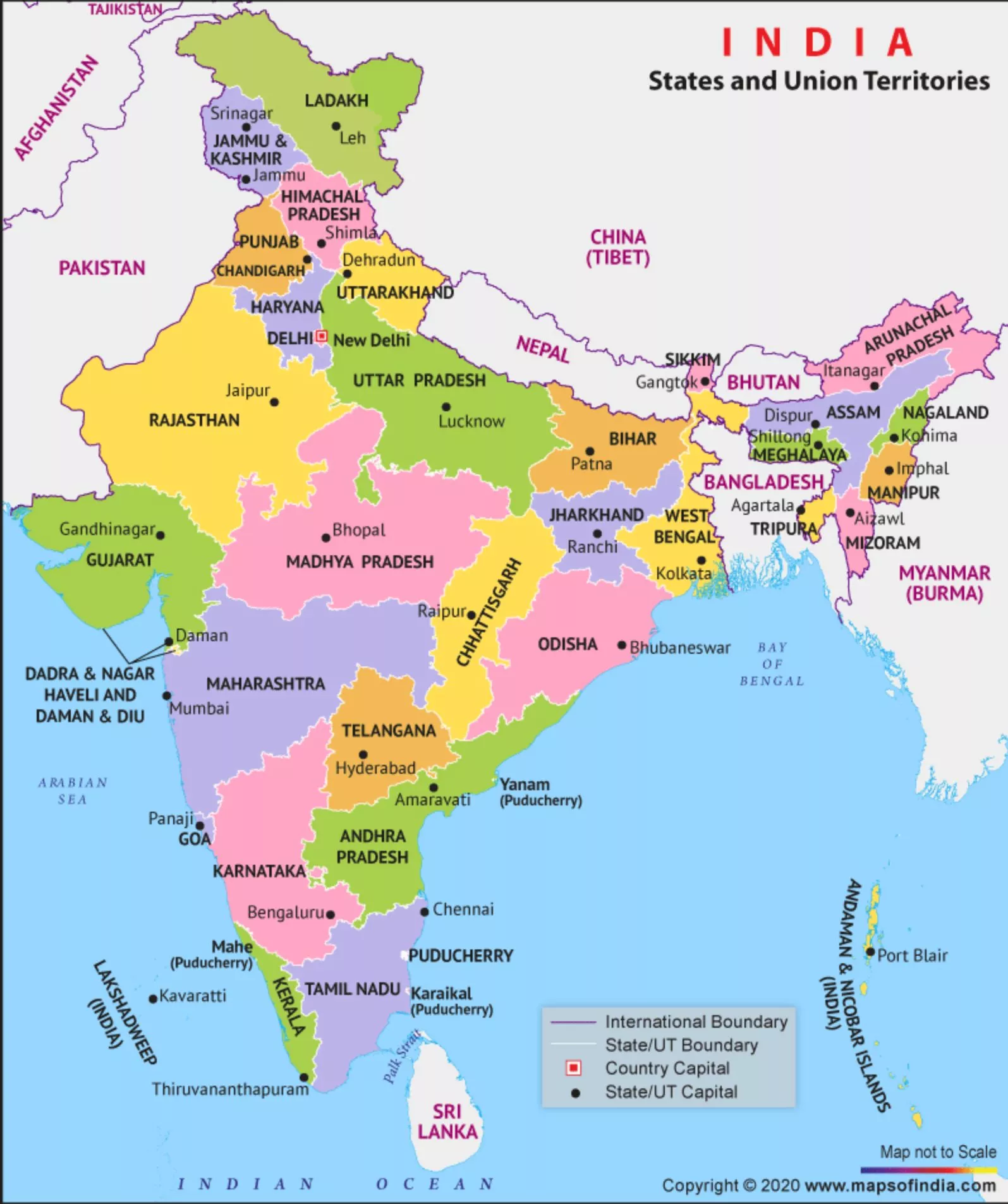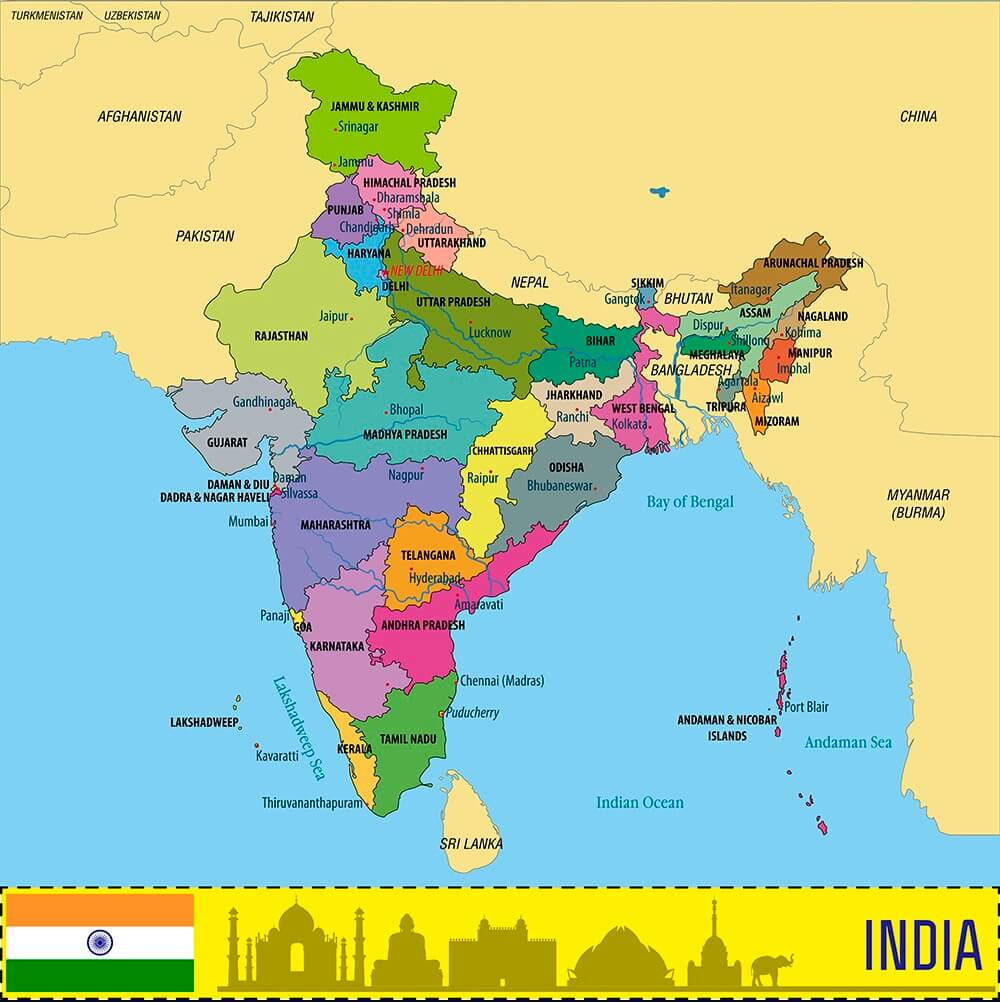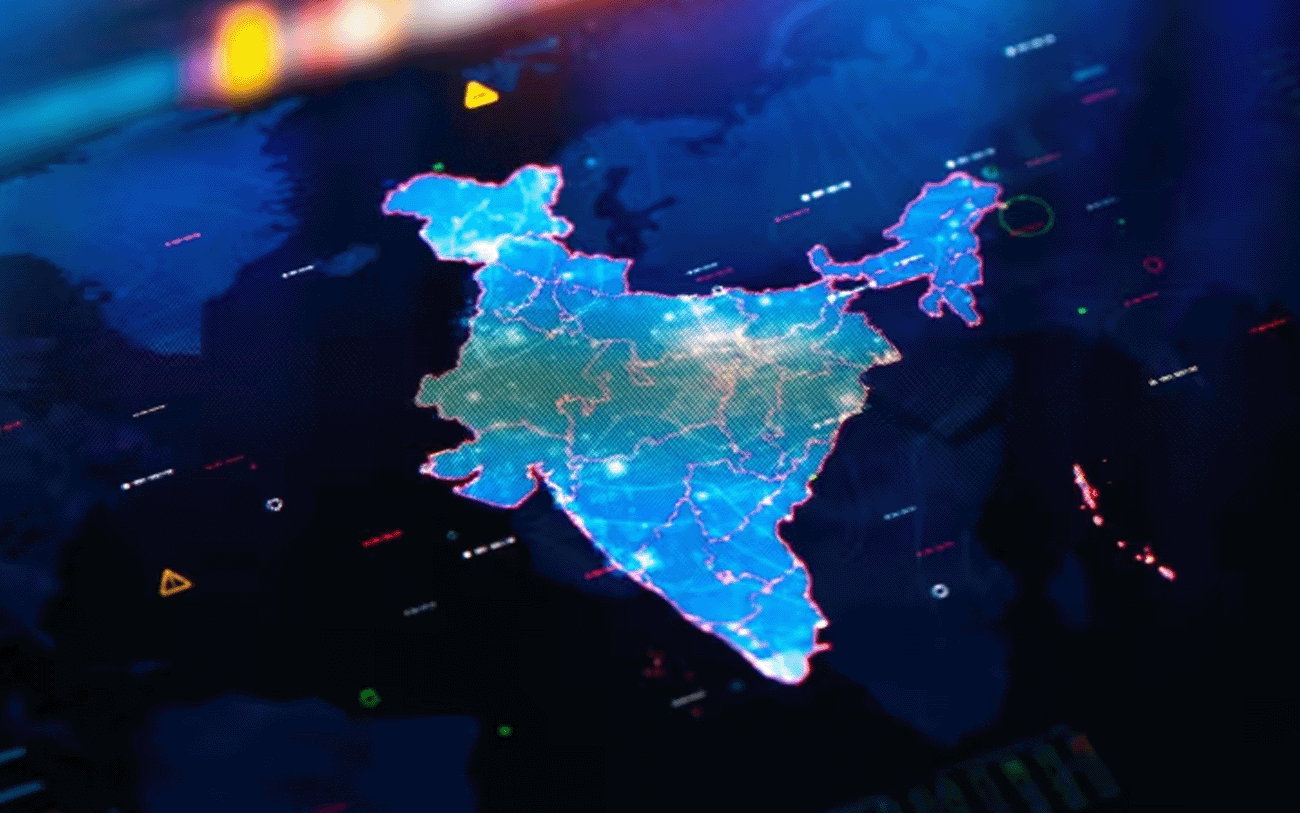Global Village and an Aspirational India
Jiddu Krishnamurti, an Indian philosopher, speaker, and writer, said – “There is no end to education. It is not that you read a book, pass an examination, and finish with education. The whole of life, from the moment you are born to the moment you die, is a process of learning.”

Image Source: https://www.mapsofindia.com/maps/india/india-political-map.htm
Learning from anywhere: In October last year, I enrolled in the ‘Mastering Growth’ course at Harvard University. More than the content, the experience was very enriching. This was a live virtual classroom. You will have to be logged in to Harvard website at a specific time (6:30 – 9 pm, Eastern Standard time) to attend the course. There were 60 wall participants (meaning 60 live attendees). I took this course from Chennai, India (meaning I had to log in at 4:00 am IST). The participants were at 60 different locations, and we had course-mates from Pakistan, Saudi Arabia, Germany, United Kingdom and every continent in the world. I was able to interact with the instructor, other participants from other countries, interrupt, and ask questions like a live classroom. It was a world class experience. The last session of this 6-week program was hosted by Ried Hoffman, Founder of LinkedIN. It was a first of its kind of experience for him as well. It was amazing that one could take this course from Chennai, India and interact with participants across 60 different locations in the world. My Internet connection was flawless, considering that I spend less than $15 per month at my home in Chennai for the Internet.
Abdul Kalam and K. Sivan: India has always been an aspiring country. However a couple of decades back it indeed was a different India. You always need to know people to get things done. (you still do). However, only a privileged few had access to schools/education. A majority of the people were left behind, and they still are. It is from this India a few decades ago, that Abdul Kalam the former President of India and Kailasavadivoo Sivan, aka K. Sivan, the current head of Indian Space Research Organization emerged.
K. Sivan studied in a Tamil medium (the local language of Tamil Nadu) government school and is the first graduate in his family. He went on to get degrees from Madras Institute of Technology, Indian Institute of Technology, and Indian Institute of Science – all premier technical institutions of India. He was born and educated in an era where there was no internet. It was very different from the hyper-connected world of today. It was a different India.
Today, India has changed for the better. Access to the internet and global learning has paved the way for hundreds if not hundreds of thousands of Kalam’s , Sivan’s to be identified, nurtured, and bloomed.
India is a Talent Land: We see this first hand at DCKAP and this is what makes it exciting for us. We scout for technical talent from everywhere. The technical expertise, talent and aspirations of people from rural parts of the country amazes me. Not all, but the smart ones experiment in Big Data, AI, Machine Learning, much like their counterparts in the San Francisco Bay Area. What they lack is the exposure of the silicon valley ecosystem and this is not too far away. The Internet and Technology has made it a level playing field. Thanks to the initiatives of the government which is playing a significant role in improving the internet connectivity across the country.
Travel: Brazil recently opened up Visa-on-Arrival to Indian citizens. We have a host of other countries to open up. Thanks to the foreign trips of our Prime Minister. I hope our Prime Minister does more of it and opens up trade further with other countries. This will enable our young engineers to travel the world, get global exposure, come back, and apply the learnings in India and sell to the world. This is already happening and is bound to increase in a flat world.
Culture: Technology is a great enabler. A few decades ago, you will have to depend on the mighty boss to give you a job, and the bosses were always treated special. This culture is slowly changing and needs to change. In today’s India, everyone needs to be treated equally. Humans will need to be treated with respect. Opportunities need to be created for everyone. Those who don’t embrace this (Enterprises and Governments) will fail.
It is a global village today and it does not matter where you come from or what your lineage is. India is going through a transformational change and it is important for us to embrace the change and enable everyone as we progress as a nation.




Leave a Reply